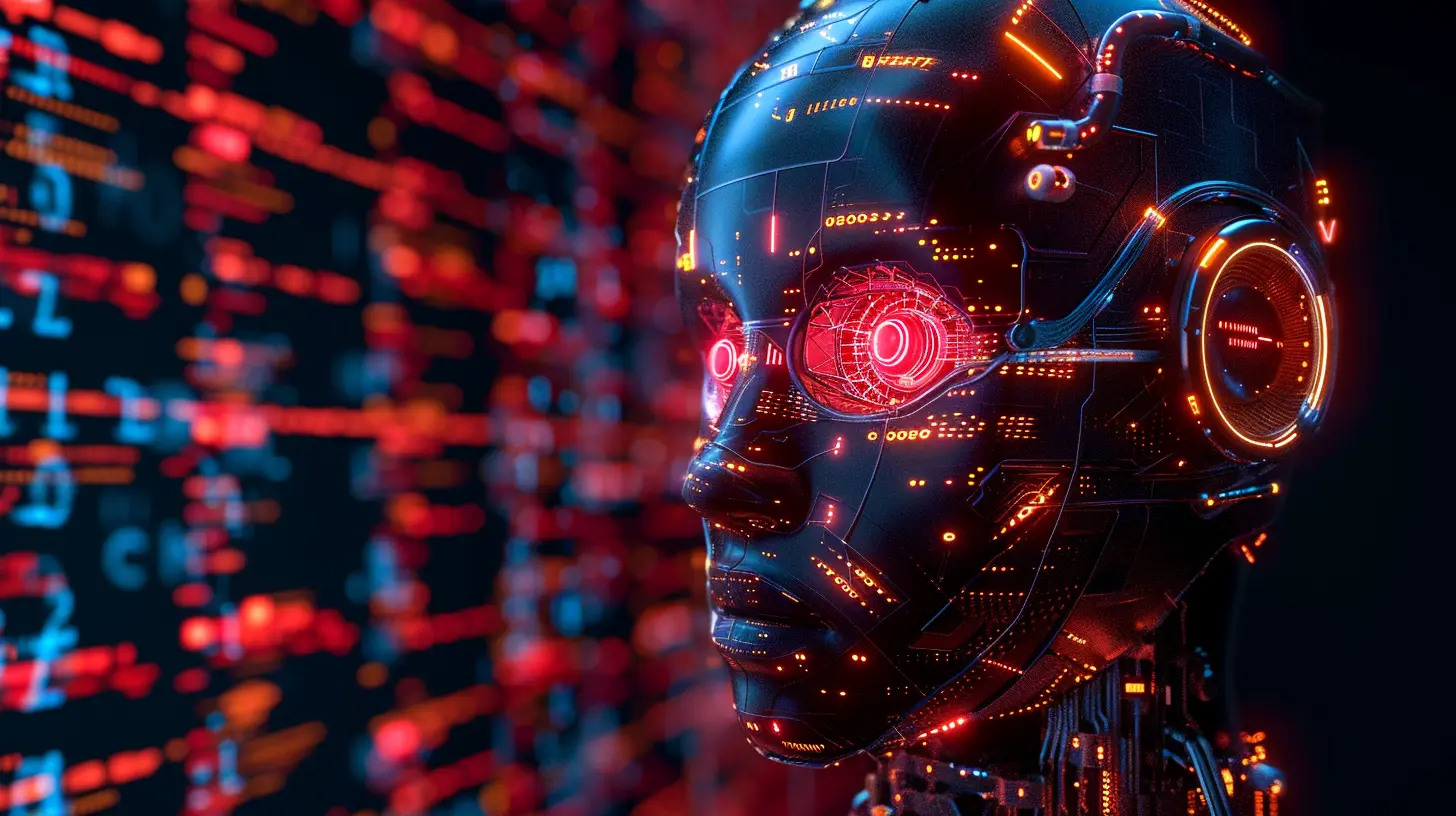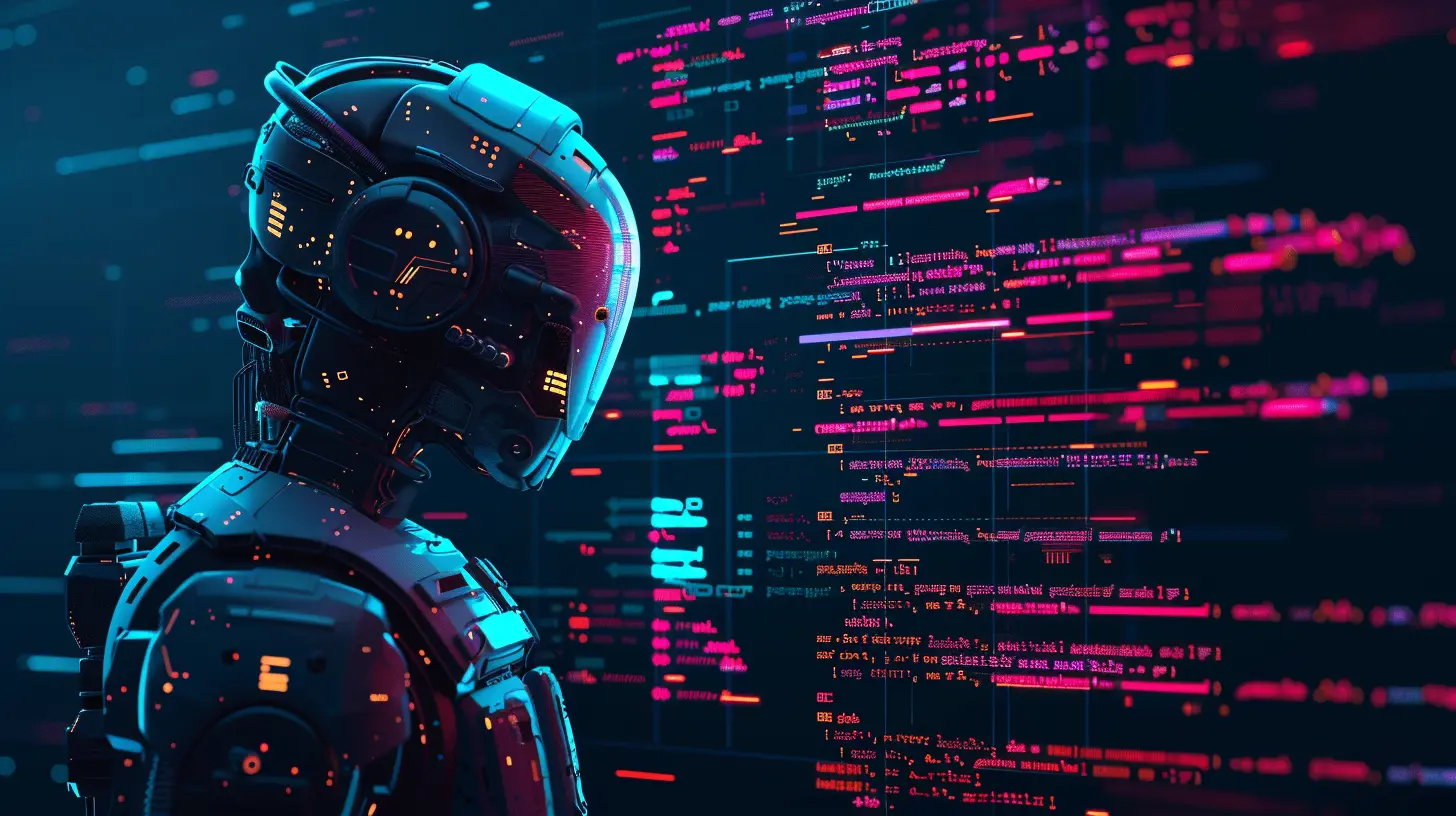Exploring the Role of AI in Code Autocompletion Tools
17 June 2025
Technology is evolving faster than ever, and coding is no exception. Whether you're a seasoned programmer or just starting out, you've probably experienced that moment when your code editor suggests the next line or completes a function for you. That's AI at work, making life easier for developers everywhere.
But how exactly does AI power code autocompletion? Is it just a fancy spell-checker for programmers, or is there more to it? Let's dive deep into how AI is transforming code autocompletion tools and what it means for the future of programming. 
🔍 What is Code Autocompletion?
Before we jump into the AI aspect, let's first understand what code autocompletion is. In simple terms, code autocompletion is a feature in modern code editors that suggests relevant syntax, functions, or variable names as you type.Think of it like predictive text on your phone—just way more advanced. Instead of simply guessing the next word you might type, it understands the context of your code and offers accurate suggestions. This speeds up the coding process and reduces errors.
Some of the most popular code autocompletion tools today include:
- GitHub Copilot
- Tabnine
- Kite (discontinued but was popular)
- IntelliSense (built into Microsoft’s VS Code and Visual Studio)
Now, let’s break down how AI fits into all of this. 
🚀 How AI Powers Code Autocompletion
1. Machine Learning and Deep Learning Models
At the heart of AI-driven autocompletion tools are machine learning models. These models are trained on vast amounts of existing code, analyzing patterns and structures to predict what a developer is likely to type next.Think about it like this: If you've ever used a streaming service like Netflix, you've noticed that it recommends movies based on what you've watched before. Similarly, AI learns from tons of open-source code repositories, coding best practices, and style patterns to make accurate suggestions.
- Deep learning models (like transformers) are used to generate more intelligent suggestions.
- Natural Language Processing (NLP) helps AI understand syntax and programming logic, not just keywords.
This is why AI-driven autocompletion is far more powerful than simple text-based suggestions.
2. Context Awareness and Code Understanding
Older versions of autocompletion tools mainly relied on keyword matching. They would suggest function names or variables based on what you typed. But AI takes it to a whole new level by understanding context.For example, if you're working on a Python function to process user login credentials, an AI-based tool doesn’t just suggest random functions—it predicts functions related to authentication, password hashing, or session management.
This contextual awareness is one of the biggest advantages AI brings to the table. Instead of generic recommendations, the tool suggests the most relevant code snippets based on what you’re building.
3. Reducing Repetitive Coding
Let’s be honest; a lot of programming involves writing similar code over and over again. AI autocompletion tools recognize these patterns and suggest complete code blocks, saving hours of repetitive work.For instance, if you’re frequently writing boilerplate code for setting up an API in Express.js, an AI-based tool can detect that pattern and suggest the entire setup automatically.
This not only speeds up development but also reduces the chance of human error.
4. Improving Code Quality and Reducing Bugs
One of the coolest things about AI-powered autocompletion is that it helps improve code quality. How? By offering best practices and flagging potential errors before they even occur.Imagine writing SQL queries—AI can suggest optimized queries, preventing common security issues like SQL injection. Similarly, in JavaScript or Python, it can recommend refactored code to make it more efficient.
It's like having an extra pair of expert eyes reviewing your code in real-time. 
⚖️ AI Autocompletion: Pros and Cons
Like any technology, AI-powered code autocompletion comes with its own set of advantages and challenges. Let's break them down.✅ Pros:
- Saves time – Developers can write code faster with accurate suggestions.- Reduces syntax errors – Less manual typing means fewer mistakes.
- Enhances learning – Helps new programmers learn best practices.
- Supports multiple languages – Works across different programming languages effortlessly.
- Context-aware suggestions – Understands the logic of your code, not just keywords.
❌ Cons:
- Dependency on AI – Over-reliance on autocompletion can hinder problem-solving skills.- Privacy concerns – Some tools use cloud-based models that may raise security issues.
- Accuracy isn't perfect – AI might sometimes suggest incorrect or irrelevant code.
- Lack of creativity – AI-generated code is based on existing patterns and lacks original problem-solving abilities.
While AI autocompletion is a game-changer, it should be used as a tool to assist developers, not replace their critical thinking. 
🔮 The Future of AI in Code Autocompletion
AI is still evolving, and code autocompletion is just the beginning. Here’s a glimpse of what the future might hold:1. AI-Powered Code Reviews
AI could go beyond autocompletion and start reviewing code in real-time, providing feedback on performance, security, and style. Imagine an AI mentor guiding you through best practices as you write code!2. Fully Autonomous Coding
Could AI write an entire program based on high-level instructions? Some AI models are already experimenting with this, but we’re not there yet. While AI can generate code snippets, complex software still requires human logic.3. Personalized Autocompletion
Future AI tools might adapt to an individual’s coding style, providing suggestions tailored to their preferences and past projects.4. AI Collaboration with Human Developers
Rather than replacing developers, AI will act as a smart assistant—offering suggestions, refactoring code, and even debugging automatically. The goal is to make development smoother, not replace human ingenuity.🔥 Final Thoughts
AI in code autocompletion is like having a co-pilot while you code. It speeds up development, reduces errors, and even helps improve code quality. However, it's important to remember that AI should be an assistant, not a crutch. Developers should still understand the logic behind their code rather than blindly accepting AI-generated suggestions.As AI continues to evolve, the future of coding looks more efficient than ever. But no matter how advanced it gets, creativity, problem-solving, and innovation will always be human traits. AI is here to assist, not replace.
So, next time your code editor suggests an entire function before you even finish typing, take a moment to appreciate the power of AI working behind the scenes. It’s not magic—it’s just really, really smart automation.
all images in this post were generated using AI tools
Category:
ProgrammingAuthor:

Adeline Taylor
Discussion
rate this article
2 comments
Macey McKeehan
AI in code autocompletion: finally, my typos can get a fancy upgrade!
June 18, 2025 at 11:01 AM

Adeline Taylor
I'm glad you find it exciting! AI aims to enhance coding efficiency, even when dealing with typos.
Kylie Cole
Finally, a robot to finish! 🎉
June 17, 2025 at 11:59 AM

Adeline Taylor
Thank you! Excited to see how AI continues to enhance coding efficiency! 🎉


